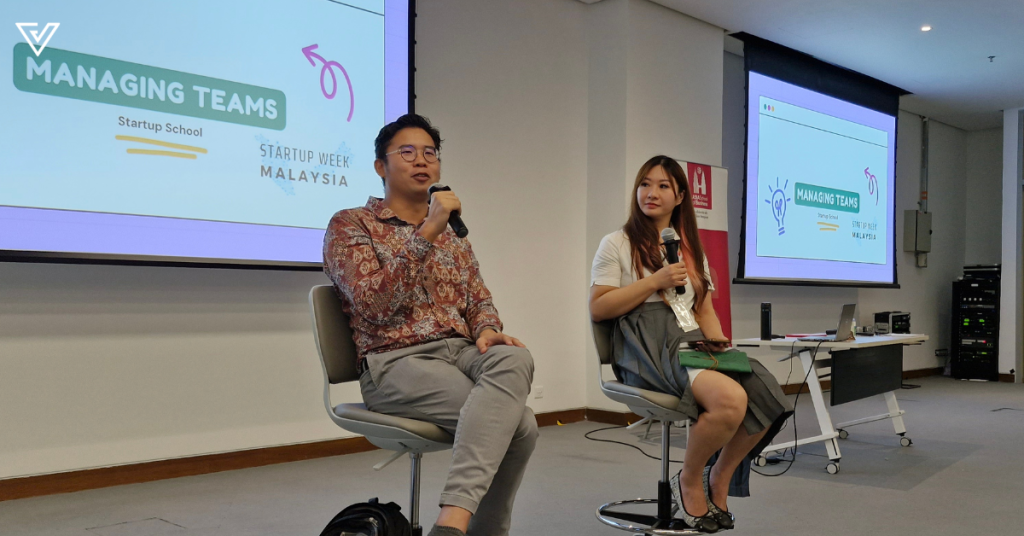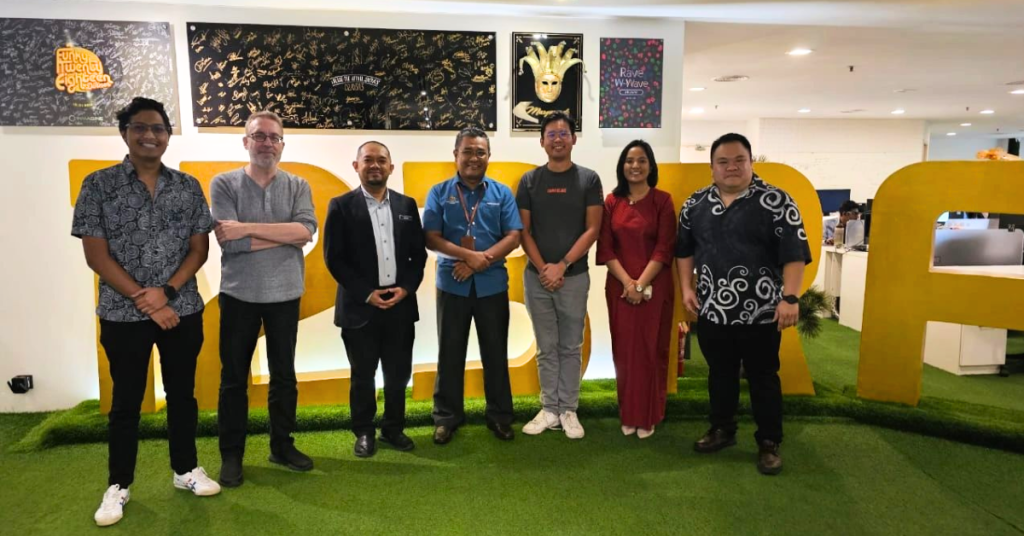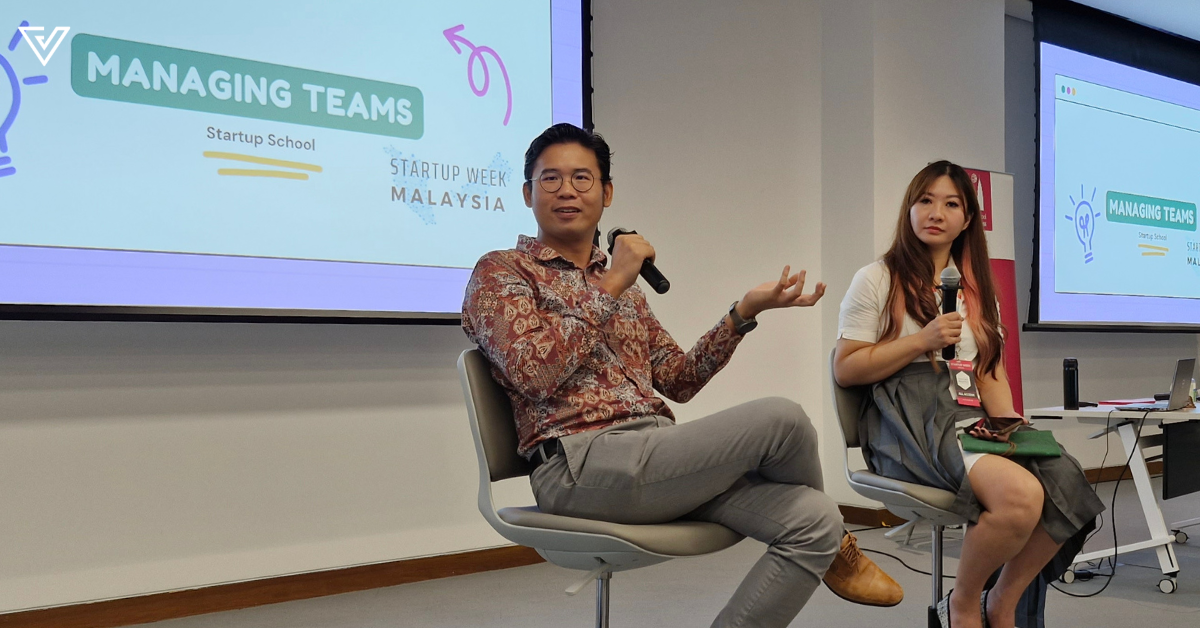If you’ve ever had to look for stock images online, chances are you’ve come across 123RF.
Founded in 2005 by Andy and Stephanie Sitt, 123RF is a site by Inmagine Group, a Hong Kong-registered but Malaysia-based company. Currently, the group is headed by CEO Warren Leow.
During Startup Week Malaysia, Warren gave a talk on how to manage and scale teams. As the group CEO of a company with over 250 staff members worldwide, he certainly knows a thing or two about that.
Here were some of the insights he shared during the session.
“Ensure there’s more governance and more discipline, but it will be at the cost of speed.”
When a company is smaller, its vision and culture are much more stable.
But as an organisation scales up, the same can’t be said. There needs to be alignment between the leader and the board, as well as with the people who execute things.
“Sometimes they tend to be a little bit more bureaucratic,” he said about bigger companies. “It’s designed in such a way that the processes and people involved are there to ensure there’s more governance and more discipline, but it will be at the cost of speed.”
While leaders might feel wary about implementing bureaucratic processes because it means the team moves slower, it’s imperative that bigger organisations take time to communicate, make sure things are documented, and ensure proper processes are in place, especially for “BAU” (business as usual) activities.
“Team dynamics is not purely about employee happiness. It’s what makes it easier to achieve business growth.”
After ensuring there is consistency in terms of value, mission, and objectives, Warren said leaders should also know how to use the carrot and a stick approach to get the whole organisation to move in the desired direction.

Carrot refers to incentives, while the stick is how you hold people accountable.
On accountability, in a smaller team, it’s easy to just pull someone aside and talk to them, but as a team grows bigger, there will be HR processes in place to be cognisant of.
These sorts of processes are necessary in upkeeping team dynamics.
He clarified that team dynamics isn’t just about keeping employees happy, but rather, it should be seen as a factor in business growth.
During his talk, an attendee had asked about his stance on remote work. To that, he said that he doesn’t believe in a fully remote work force, as face-to-face interactions are necessary for growth and team dynamics.
“Compromise as a solution is okay, but it should always be to the interest of the company rather than because some employees just want to work from home,” he said. “You as the leader must choose what is good for the organisation, and what is good for team dynamics.”
“Perfect the skill of firing fast.”
Leading such a big team, Warren admitted that he’s made the mistake of taking too long to onboard important people.
Although, he added a counterargument that when you hire expensive people, they should be able to hit the ground running regardless.
He advised balancing between giving these individuals enough context while not swamping them with too much information so that they can form their own perspectives and give fresh takes.

“But instead of focusing too much on onboarding, the key point I want to highlight is perfect the skill of firing fast,” Warren said.
“Everybody thinks that the CEO’s job is fine and dandy, but the reality is it’s quite confrontational,” he continued. “You can inspire people, you can motivate people, you can give them career development paths, but a big part of the job that is understated is school or courses is how to confront people.”
Leaders need to be able to tell people to get their act together—in nicer words but in very clear and firm terms.
“Do not compromise in diversity of values.”
With Inmagine Group having a global workforce, that means there is a diversity of culture and ideas, which can be a great thing in bringing about fresh perspectives.
But how does Warren ensure that these diversity in cultures don’t affect the team dynamics?
To him, the diversity of culture isn’t an issue—but diversity in values is not acceptable.
Leaders being the “custodian of values” must thus identify bad apples in the group and practise the last point of firing fast, so that a negative culture loop doesn’t root itself into the company.
“Sometimes, yes, things can be negotiated, but there are times you need to be firm and it’s not actually a negotiation. It’s a policy that you set. It’s a direction you set,” Warren said. “The reality is, if you’re the senior leader, people will just have to follow suit.”
After all, leaders are held accountable to the business growth of the organisation.
“Growth is not about creating a comfortable environment where you can have work-life balance, work from home—you’re tolerating dead wood. There’s no room for dead wood in any successful organisation.”
“You must know how to behave like a boss when there’s a need to behave like a boss.”
Especially in smaller teams, bosses or leaders often build very strong bonds with their team members.

However, when push comes to shove and the leader must get rid of bad apples or hold people accountable, these actions may negatively affect morale across the team.
In this situations, Warren said leaders need to compartmentalise. “It’s very important to be clear who’s the boss, who’s not the boss.”
In essence, it’s necessary for leaders to maintain a level of distance and keep things professional.
Tough conversations should be objectives-based to minimise the influence of emotions. Desensitising yourself may be a skill to practise.
“If you’re the CEO, you are forced by necessity to see a way through by hook or by crook.”
It’s not always easy for people to see the road ahead clearly. Warren recognises this, but he shared it’s a leader’s duty to see a way through by hook or by crook—otherwise, things won’t go anywhere.
“Your role as a leader, founder, or CEO is to get the company to push the boundaries so things have a sense of momentum,” he said.
Momentum refers to the sense of moving in a positive direction, rather than being stagnant. Generating this momentum is easier with a small team, but as an organisation scales, expect there to be some inertia.
“Reality is, it’s up to you to define your direction,” he concluded. “There are times to hold back on an action rather than disappear down a rabbit hole. But if you play it safe, the organisation won’t go anywhere.”
So, leaders must take stock of the cards they have in their hands, set the right direction, determine whether it’s the right moment to act, and make that call accordingly and decisively.
- Learn more about Inmagine Group here.
- Read other articles we’ve written about Malaysian startups here.

